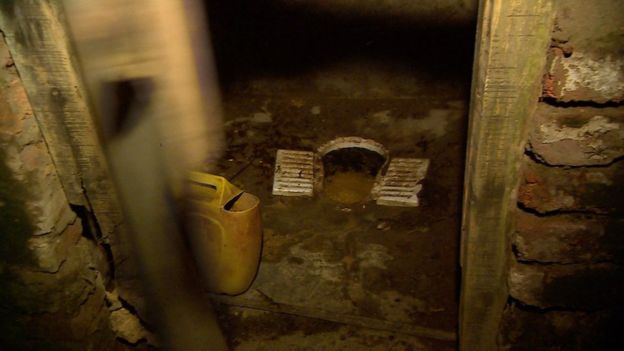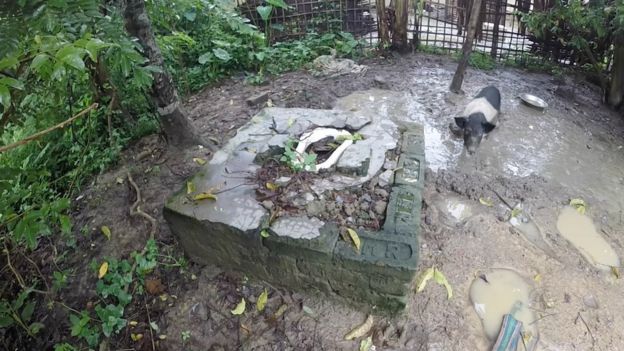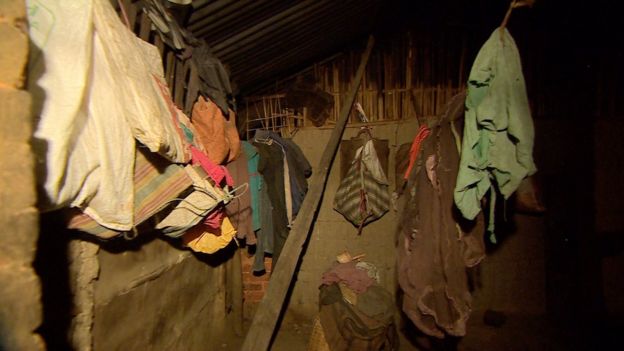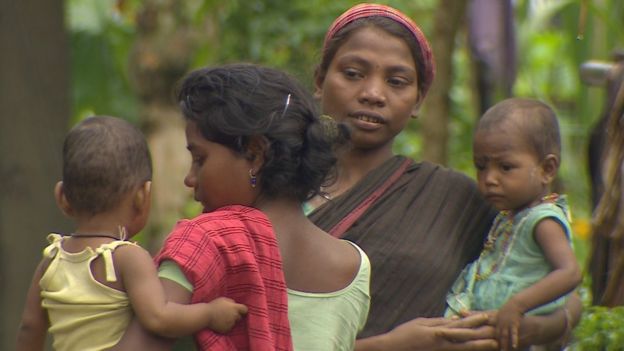|
Several of Britain's biggest tea brands, including PG Tips, Tetleys and Twinings, have said they will work to improve the tea estates they buy from in India after a BBC investigation found dangerous and degrading living and working conditions. Harrods has stopped selling some tea products in response, and Rainforest Alliance, the ethical certification organisation, has conceded the investigation has revealed flaws in its audit process. The joint investigation by Radio 4's File on Four and BBC News in Assam, north-east India, found workers living in broken houses with terrible sanitation. Many families have no toilets and say they have no choice but to defecate amongst the tea bushes. Living and working conditions are so bad, and wages so low, that tea workers and their families are left malnourished and vulnerable to fatal illnesses. There was also a disregard for health and safety, with workers spraying chemicals without protection, and on some estates, child labour being used.
Toilets overflowingPlantation owners in India are obliged by law to provide and maintain "adequate" houses, and sanitary toilets for workers. Yet homes on the tea estates were in terrible disrepair, with leaking roofs and damp and cracked walls. Many toilets are blocked or broken. Workers said their homes were not repaired despite repeated requests to management, often over many years.  Toilets are often clogged, and workers say their only option is to go outside Toilets are often clogged, and workers say their only option is to go outside

Workers say they have been asking management to fix living conditions for years

Estate officials have admitted to a "a huge backlog of repairs"The drains are open and unlined and many clogged with effluent. In some cases, cesspits are overflowing into the living areas of people's homes. Many homes have no electricity, and on one estate workers had to drink rainwater piped from a stream. A manager on an estate owned by the world's biggest tea producer, McLeod Russel, admitted there is "a huge backlog of repairs". McLeod Russel's Assam estates supply tea to the companies that own PG Tips, Liptons, Tetley and Twinings. The manager described conditions for some workers as "not acceptable" and said the estate has just 464 toilets to serve 740 homes. The head of the Assam branch of the Indian Tea Association, which represents tea producers in India, also accepted that conditions appeared to be well below standard. "Let me be clear," Sandip Ghosh told the BBC, "cesspools and open defecation are not acceptable to me or the association. These issues need to be addressed."
MalnutritionMany Indians live in dismal housing, but Indian law says decent housing and sanitation are part of a tea worker's pay. This is the justification plantation owners give for the extremely low wages in the industry. Tea workers in Assam earn 115 rupees a day, just over £1 ($1.50) , significantly below the minimum wage (177 rupees in Assam). This combination of appalling conditions and low pay on tea plantations can be deadly. Studies have confirmed levels of malnutrition on tea estates are very high, even by India's woeful standards. 
"Diseases of poverty" are common among estate workers in Assam
Nine out of 10 patients from tea plantations are malnourished, according to the medical director of Assam Medical College, one of the main general hospitals serving the tea region. Professor AK Das says malnutrition makes tea workers and their families vulnerable to diseases caused by their unhygienic living conditions. "Diseases of poverty" are common, he says, with lots of patients coming in with diarrhoea, respiratory tract infections, skin lesions and serious infections like TB and meningitis. He describes a tragic cycle: children come in so weak from malnutrition they struggle to recover from curable illnesses, and then quickly relapse after they are released from hospital. As a result, Prof Das says, tea workers' children - and their parents - are significantly more likely to die of their illnesses than other patients at the hospital.
Child labourAnd the BBC found other abuses. One girl who said she was 14, was picking tea at the prestigious Doomur Dullung estate. She said she had been working full time for two months.
Evidence of child labour being used on some Indian tea plantations
Doomur Dullung is owned by one of the oldest tea companies in the world, Assam Company, and supplies Twinings, Yorkshire Tea, Harrods and Fortnum and Mason. Two other children said they had been employed full time on estates owned by Assam Company since they were in their early teens. The UN rules on child labour say no child under 15 should work full time.
|  |Archiver|手机版|小黑屋|本本才能·88cn.cn
( 赣ICP备15005731号-1 )
|Archiver|手机版|小黑屋|本本才能·88cn.cn
( 赣ICP备15005731号-1 ) 